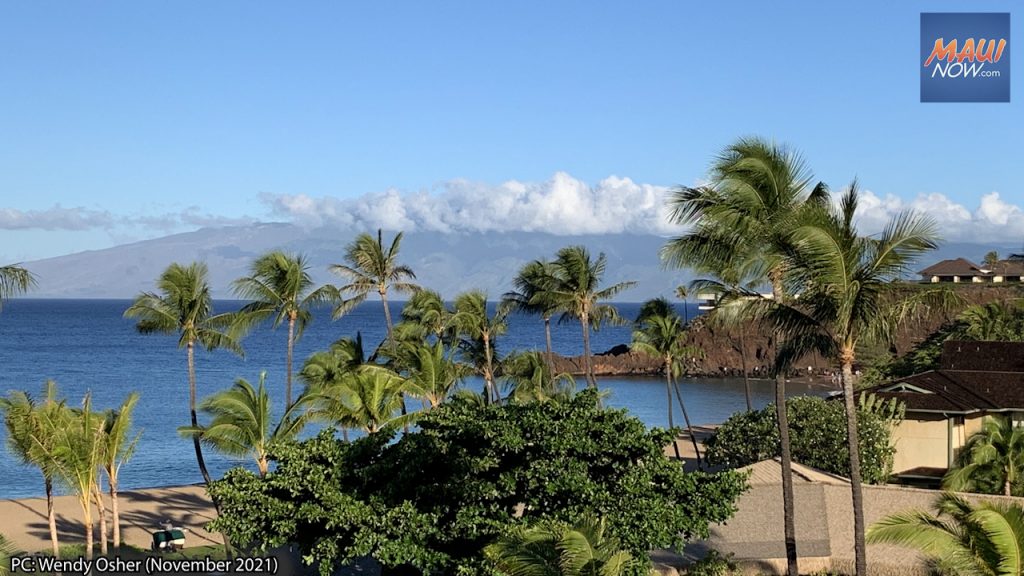Residents plan legal action to halt controversial Kā‘anapali Beach restoration plan

West Maui residents said they are pursuing legal action and other measures to halt a beach restoration plan at Kāʻanapali Beach that they say is riddled with negative environmental and cultural impacts.
The state is proposing to bring to shore 50,000 cubic yards of sand, which will nearly double the width of Kāʻanapali Beach–from 41 to 78 feet–in order to mitigate erosion. Sand would be moved to an approximately 1-mile section from an 8.5-acre sand field located about 150-800 feet seaward of Kāʻanapali Beach.
Kāʻanapali Beach Restoration and Berm Enhancement’s final environmental impact statement has been submitted to the governor, according to the state Office of Environmental Quality Control’s “The Environmental Notice” published last week. The document awaits the governor’s acceptance, and there is no deadline for decision, the office said.
Kekai Keahi, Lahaina resident and community organizer, on Monday said that residents are pursuing legal action and will do anything necessary to prevent the plan from moving forward.
“We are going to take legal action,” he said. “They have 16 more permits–every step, we will be there.”
Concerned residents, including three area canoe clubs, are worried the work will smother the reef, permanently damage delicate ecosystems, and alter the only state-sanctioned canoe race location on Maui.
“If they go ahead and put the sand where they say they’re going to, it will alter the race course,” Walker “Boy” Crichton, Lahaina Canoe Club coach and vice president, said on Monday.
He and his wife, Rose, club secretary, said community members weren’t adequately informed of the proposed changes and encouraged people to learn more.
Council Member Tamara Paltin, who holds the West Maui residency seat, opposes the plan, saying it’s an “irresponsible” way to spend taxpayer money on a short-term fix.
“Look at the state’s focus–they want to use $11 million of our taxpayer money for this temporary Band-Aid solution on an arterial bleed,” she said.
Paltin added that managed retreat and strategic relocation of hotels and other shoreline buildings are better solutions to sea level rise.
State and hotel representatives contend that the work is necessary to curb worsening erosion.
The project is considered a short-to-midterm effort to mitigate the impacts of rising water levels and coastal erosion, which are increasing with global sea level rise, according to a state Department of Land and Natural Resources press release Oct. 23 on the plan.
Since 1990, the Kāʻanapali Ali’i, Sheraton Maui Resort & Spa and Ka’anapali Beach Hotel have been threatened by erosion events. Beach walks have been damaged and removed and acres of vegetation and trees swallowed up by the sea, the draft study said.
The preliminary estimated cost for the Kāʻanapali Beach Restoration and Berm project is $11,125,000.
If the final environmental report is accepted by the governor, the project will need more than a dozen permits. A Conservation District Use permit, which would need further board approval and be preceded by more community outreach and another public comment period, would be required, DLNR said in the October release.
Keahi on Monday said that residents are disheartened about the public process and he anticipates approvals will be awarded.
“In the end, civil disobedience–setting up boats, blocking the beach–we are already looking at that, seeing how the state government just disregarded what we are saying,” he said. “We lost faith in the whole system.”
DLNR declined to comment Monday on West Maui residents’ responses to the project.
The final environmental impact statement is available for viewing online.





_1768613517521.webp)







